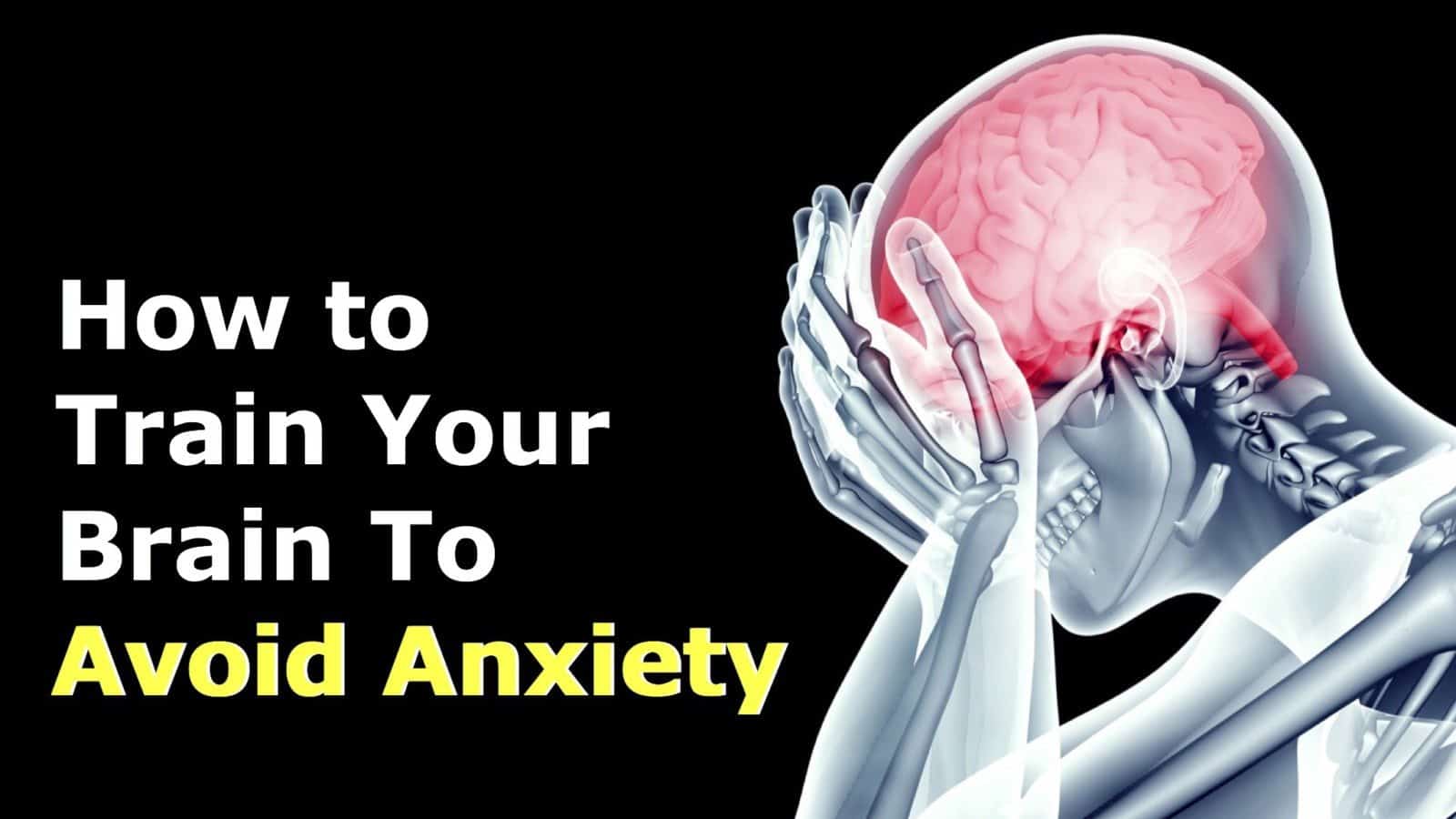Health: How to Train Your Brain To Avoid Anxiety

The thing that makes fears and phobias so persistent is that virtually anything you do to oppose, escape, or distract from the anxious feelings and thoughts will be turned against you, and make the anxiety a more persistent part of your life.” – Dr. David Carbonell
While the exact cause of anxiety, particularly anxiety disorders, remains unknown, there are a few theories on why some people struggle with this mental state. Factors in one’s environment, genetics, and alteration of neurochemistry are all potential “triggers” of anxiety.
An important distinction must be made. Having anxious feelings – like many other forms of stress – from time to time is not irregular. Our brains have evolved to detect and avoid threats – a mechanism known as the “fight or flight response.”
The reasons why persistent anxiety poses a real threat to both mental and physical health is two-fold: (1) some cannot distinguish “normal anxiety” from a true threat, and (2) repeated exposure to #1 alters brain chemistry; thereby altering thoughts, feelings, behaviors, and emotions.
“Prevention is the best cure” is a well-known axiom within the medical community, and it is true for virtually every known physical and mental disease in existence. Problems with anxiety are not different in this respect.
HERE ARE FIVE WAYS OF “TRAINING” YOUR BRAIN TO AVOID (AND PREVENT) UNHEALTHY ANXIOUS THOUGHTS:
1. BECOME AWARE
The AWARE technique is another method of “interrupting” anxious thoughts before they take hold. Practitioners that advocate this approach cite its powerful impact in reducing and prevent anxious thoughts.
A – Acceptance: This simply means to accept what’s happening – and to “go with it.” Attempting to counteract, fight with, or succumb to anxiety only heightens its effects.
W – Watch: To “watch” anxiety in action is to remain a distant observer of its activities. Observe the anxiety without hesitation or judgment – a practical approach that prioritizes mindfulness. Remember: the anxiety and you are two different things.
A – Act: More specifically, act as you normally would and carry on about your day. Think about the task in front of you. Also, notice your breathing patterns to avoid shallow inhalation.
R – Repeat: Repeat “A-W-A” until the anxiety either dissipates or becomes entirely manageable.
E – Expect: Anxiety provokes fear – a fear that almost never surfaces. Expect the best outcome. Repeated practice of this technique will work given proper attention and focus.
2. ESTABLISH A ROUTINE
People that struggle with anxiety often feel that their lives are out of control. In fact, many that struggle with anxiety (e.g. OCD patients) attempt to control every facet of their lives; when their plans fail, anxiety often comes back with a fervor.
A relatively simple way to overcome this problem is to establish a routine. Set a schedule and apply some self-discipline to stick with it. It’s important to understand that a routine (or schedule) needn’t place restrictions on how you live. In fact, those with a well-kept routine often discover additional free time to enjoy life.
Read Also: Between Bullets & Death: The Story Of These J&K Cricketers Is An Inspiration For All Youth
Arrange a schedule for work, family, activities, and interests. Also maintain a sleep/wake time throughout the week.
3. GET PLENTY OF RELAXATION TIME
Trying to relax while experiencing anxiety is often difficult. Instead, setting aside time to get some R&R while not in an anxious state is more beneficial. The idea here is to take advantage of a balanced state of mind; something that will serve as an effective countermeasure to anxiety yet to surface.
Make it a priority to get away from stressful distractions, even if it’s just 20 minutes per day. This time is your time to do what you wish. Mindful breathing is an excellent way to spend this allocated time, but anything that brings you joy and contentment is a wonderful anecdote to anxiety.
4. STOP THE ANXIETY BEFORE IT KICKS IN
Anxiety is a process – a complicated process, but a systematic one nonetheless. It is important to understand this, as it allows us to distance ourselves from its intended effects.
First, understand that anxious feelings are separate from yourself. You are not your anxiety. Second, know the condition(s) that trigger anxiety and try your best to mitigate or eliminate them. Third, in the anxiety should fully surface, refuse to take part in its ploy to discombobulate the mind.
Numerous methods are promoted to help stop anxiety in its tracks. Here are some examples:
– Picture a red “STOP” sign in your mind
– Reassuring thoughts, such as “I’m okay,” or “It shall pass.”
– Pinch yourself (not too hard)
– Or…just find something fun to do if you can
5. EXERCISE
If you regularly visit our site, you’ve surely noticed that we’re huge proponents of physical activity. The simple reason is that exercise, perhaps more than any other drug, supplement, or self-medication, produces numerous health benefits – and, arguably, does so more effectively than anything else we can do.
Related article: These Things Happen to Your Brain When You’re Anxious
Of course, exercise is beneficial to the brain. Therefore, exercise benefits many adverse states/conditions of the brain, including anxiety. We’ll leave it to the experts to explain the rationale behind such claims.
Read Also: Rio Ferdinand announces Boxing as his third career profession
According to the Anxiety and Depression Association of America (ADAA):
“Scientists have found that regular participation in aerobic exercise has been shown to decrease overall levels of tension, elevate and stabilize mood, improve sleep, and improve self-esteem. About five minutes of aerobic exercise can begin to stimulate anti-anxiety effects.”
Further:
“According to some studies, regular exercise works as well as medication for some people to reduce symptoms of anxiety and depression, and the effects can be long-lasting. One vigorous exercise session can help alleviate symptoms for hours, and a regular schedule may significantly reduce them over time.”
The ADAA’s message is a simple one: management of physical health manifests into mental health benefits, especially when exercise becomes a routine practice.


Comments
Post a Comment